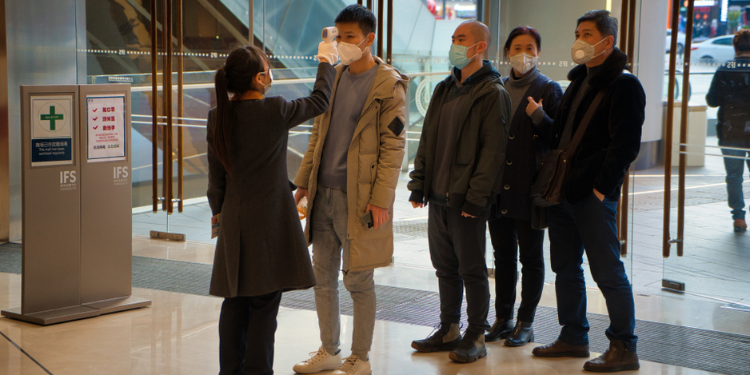
Countries in South East Asia were the very first to be infected by the coronavirus outbreak. Here is an insight into the lives of expats in this part of the world as the epidemic is increasingly becoming under control.
South Korea
Matthias, French expat in Daegu
Matthias, who lives and works in Daegu, has only just gone back to work from a two week work from home period. The young French expat remembers the very first case of coronavirus detected in this area. "I remember the day the first patient was diagnosed in Daegu, I had only just come back from vacation. On social media, many American English teachers had started to panic but when I got back to work, I realised life was just going on as usual."
A few days later, however, things got worse. "It was only then that the first preventive measures were put in place. Wearing a mask became mandatory, everyone's temperature was monitored at the entrance and exit of the building, different lunch times for different departments to reduce the amount of people present in the canteen. My teacher friends have all seen their classes canceled, and sports, social or religious gatherings have been banned. And these measures are still in place today."
However, Matthias has not had the experience people from back home have been sharing on social media. "No closing of stores, empty streets or shortage of pasta, rice or toilet paper, so I never really felt in times of crisis, the only difference being the fact that everyone wears a mask now."
Because four employees from his company were diagnosed with COVID-19, Matthias had to work from home for two weeks but is back to the office now.
China
Summayah, Mauritian expat living in Wenzhou
Summayyah has been living in Wenzhou for 12 years now with her Pakistani husband. She has been personally involved in the crisis. Indeed, as doctors, Summayah and her husband have volunteered endless hours trying to diagnose people at borders and treat patients in hospitals. "It was a tough two months with the city I am in being the second most affected city during the outbreak. We were in complete lockdown. People could go out to buy grocery every other day but everyone's temperature with temperature checks, and when all these were lifted, it really felt like we accomplished something extraordinary."
Today, the situation is getting back to normal in Wenzhou. "All cities in Hubei province, except for Wuhan, have had no new cases over the last week and I cannot explain how relieved I feel."
While the situation in her host country, Summayah follows closely the happening in her home country of Mauritius. "I've been following the situation closely in Mauritius. I'm grateful they have no cases. I am, of course, worried as my whole family lives there." Summayah is, therefore, constantly in touch with her loved ones back home. "I stay in touch with everyone at home via social media platforms. It is really hard to be far away, especially since here we are slowly going back to normal and the threat there is more real than ever. It's scary that there is nothing I can actually do from here except giving them the right information and the right tools to fight this. What's scarier for me is with all borders closing, each country putting their own travel restrictions and no plane flying between Mauritius and China. God knows how long before I can actually go home again."



















